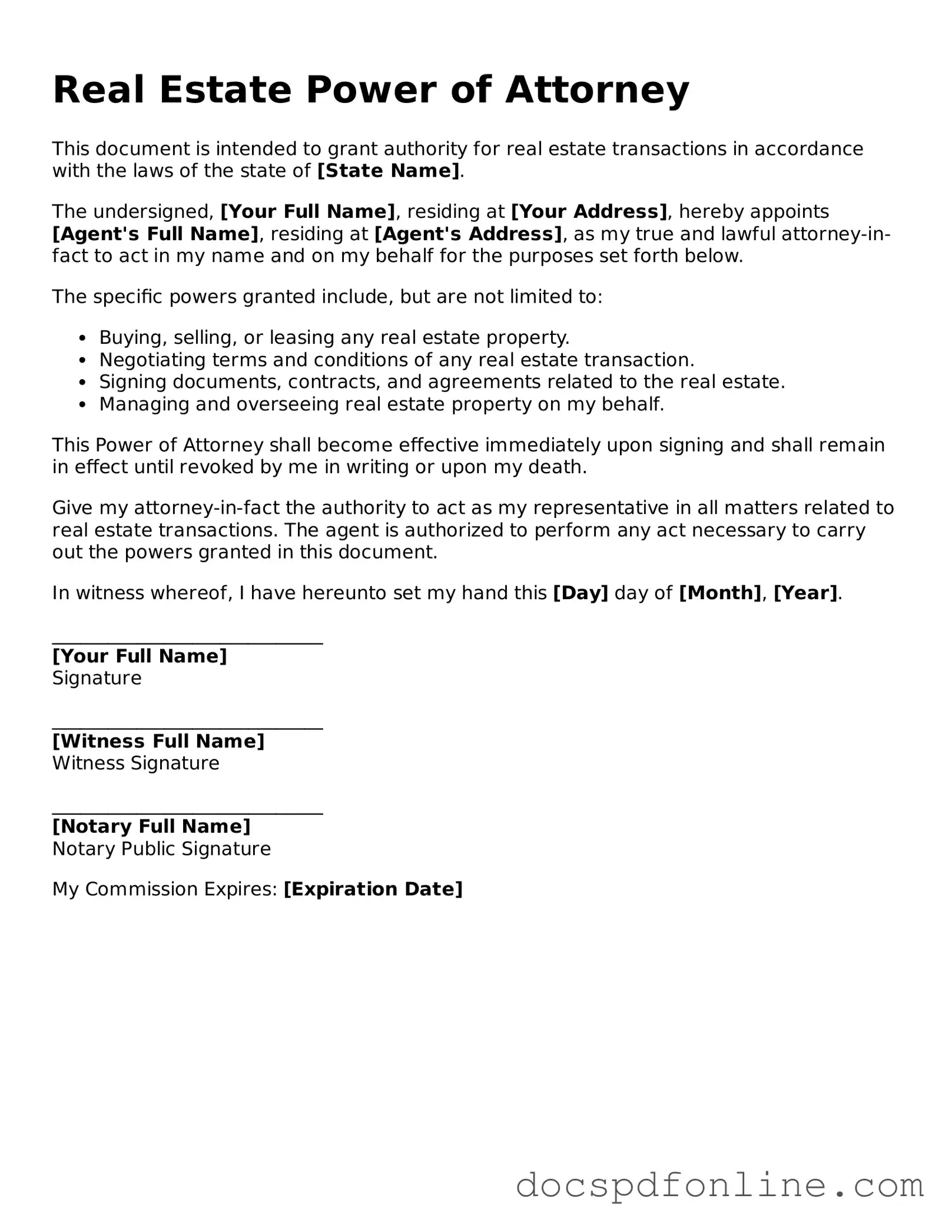Attorney-Approved Real Estate Power of Attorney Document
A Real Estate Power of Attorney form is a legal document that grants one person the authority to act on behalf of another in real estate transactions. This form can be crucial for individuals who may be unable to manage their property affairs due to various reasons, such as being out of town or having health issues. Understanding how this form works can empower you to make informed decisions about your real estate dealings.
Launch Editor Now

Attorney-Approved Real Estate Power of Attorney Document
Launch Editor Now
Save time — finish this form fast
Finish Real Estate Power of Attorney online — edit, save, download made easy.
Launch Editor Now
or
↓ PDF File
